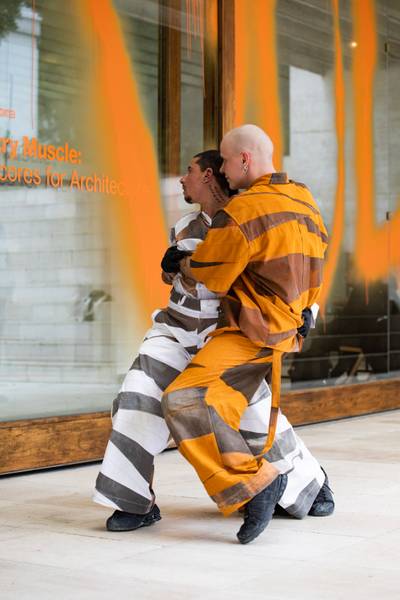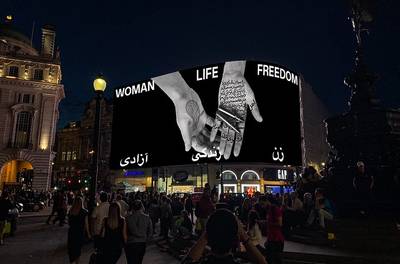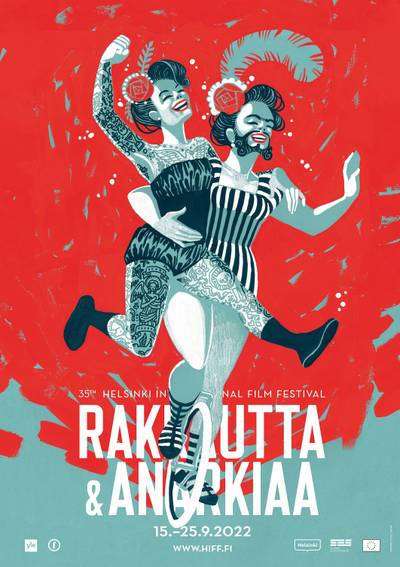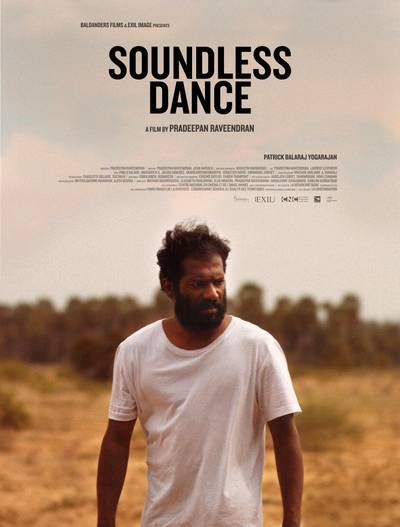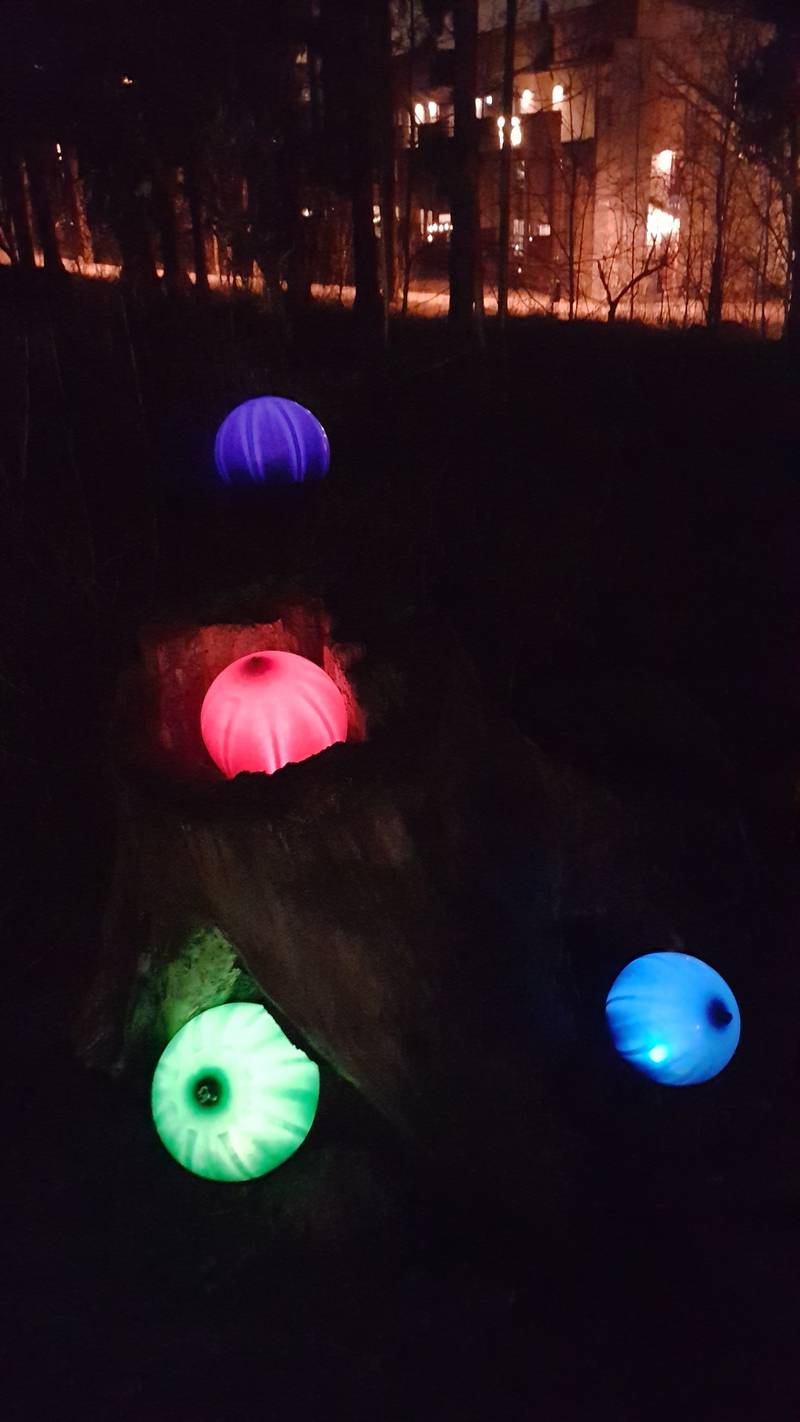

Going impro with Fionde outside
Saara Kahra is a Helsinki-based writer. She is mostly a poet, by heart and skill, but is venturing into prose. She is a member of the Helsinki Writer’s Group.
Concept and words by Chiara Bersani | Sounds by Illaria Lemmo | Translation by Nicola Paccagnani | Design by Pomo | Produced by Samara editions & Black Box theater | Published by Samara editions, Milan 2021
Fionde’s story is based on four central elements, which are firmament (represented by the balloons), desert (place), wind (sound) and stars (lights). I have built my review using these elements as titles for each section.
Firmament (balloons)
“I feel them again you know.”
“What?”
“The doors shutting.”
You see in the world, what is on your mind. So it is these lines, which strike me of Fionde’s score, the week I am writing the review. The same week omicron was discovered in South Africa. Everything is getting so serious again.
Fionde is a performance that arrives in the form of a postal package. A scorebook, five balloons, and lights to insert into the balloons are included in the package. It is accompanied by a soundtrack of 23 pieces of music. These are Fionde’s tools for a playful adventure. As Fionde’s creators describe it:
“Fionde brings you the miracle of the premiere if you allow it.”
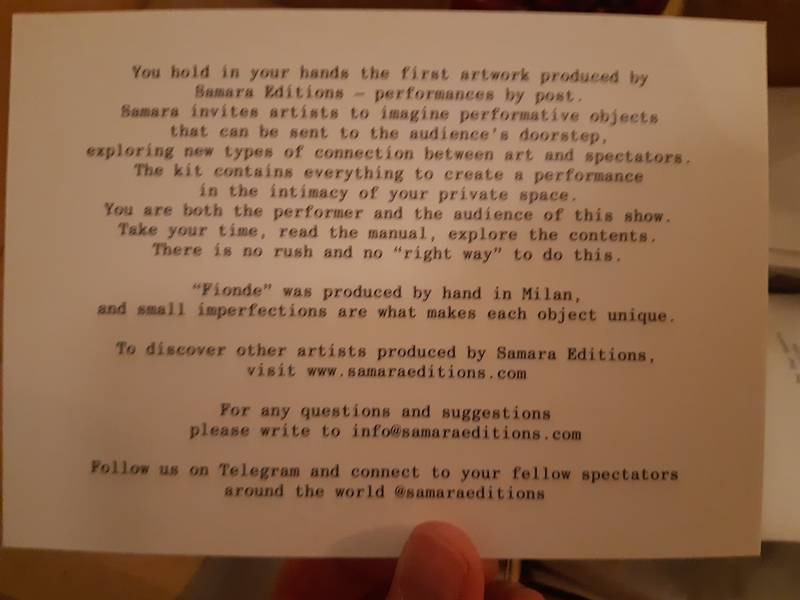

Invitation to experience Fionde
In the past 21 months, I have taught myself and learned to make room for life and put omicron, delta, alfa, and other beasts to the back of my mind. There they fight for routes to my forehead, but I fight back. Like we all, I am fighting this fight day and night. Danger and the mundane intertwined, we have been navigating a new world for nearly two years now.
On March 22nd of this year, I wrote in my notes: "Had a dream that I was at a party. In Italy, The sun was shining! Nobody was wearing a mask. I was chatting away, yet they didn’t understand what I was saying. I woke up and realized I was speaking French. Never mind, the sun was shining and nobody was wearing a mask. " The world we know, the world we were brought up in, the world we call normal, still exists in our dreams. Our subconscious is preserving it like all the rest we go through. I wonder what else our subconscious is preserving at this time.
Since our subconscious is preserving everything we live through, it is also making space for the experiences of every day in this era of isolation. The era of desertion.
Fionde is all about dreams and how the world is experiencing social isolation. As described by Baltic Circle Festival, “it is born in a time marked by altered formats of community, and parties and rituals that have fallen silent.” Fionde’s central theme is the desert. As the producers depict it:
“The Latin term deserto originates from the verb deserere, which signifies to abandon. Deserere, in turn, is composed of de, which bears a negative acceptation, and serere (to bound), thus no longer bound or unbound.” – Wikipedia Italia
With this repetition of desert in the names of scorebook texts and music track names, Fionde is helping us to tell a story of an unbound world. Kind of funny, I find. I’ve felt very bound in the last two years, sitting daily – more frequently than before – in cross-continental teams and zooms. But truth be told some relationships, some friendships have come unbound in this time. And at the same time, if we think of the words “come unbound,” it sounds like liberation. To come undone makes me think of something like celebratory drinking after a hard team task. Letting go of inhibitions, restrictions, and shame. Could this be what Fionde is about? The more I spend time with it, the more I gravitate towards this angle.
I think Fionde is a dreamy invitation and instructions for playfulness. This kind of liberation I can really use now.
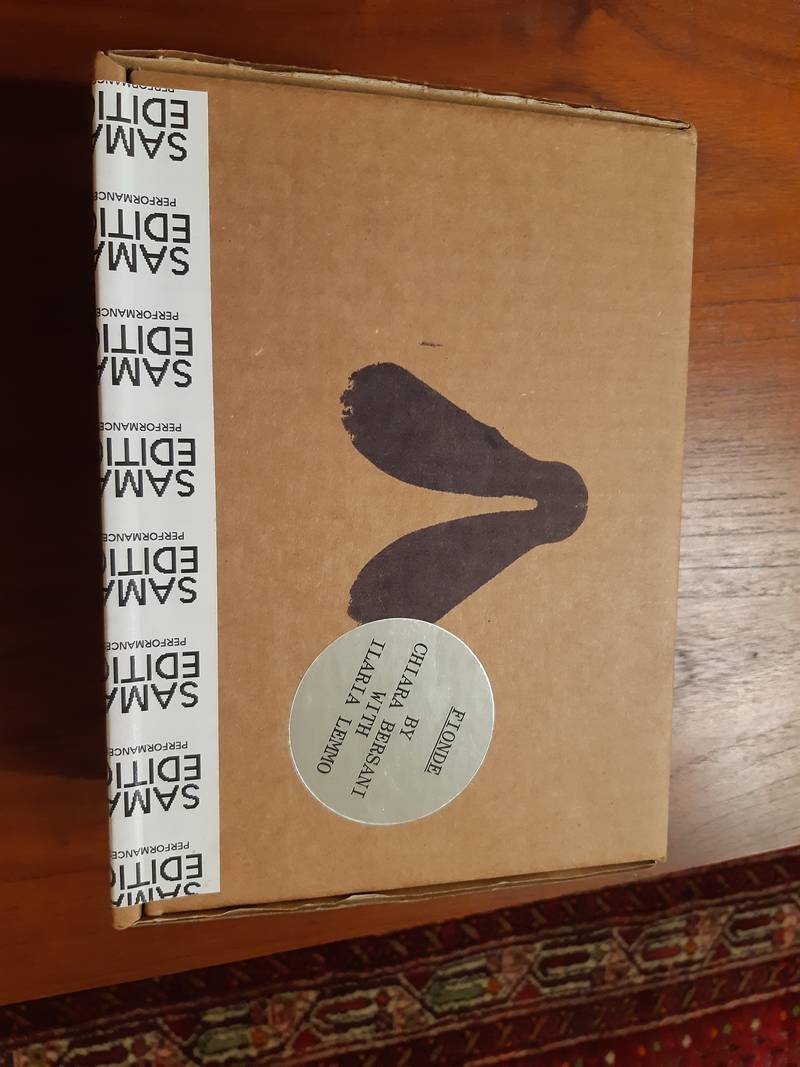

Unopened Fionde
Stars (lights)
When Fionde arrives, I look at the box for a few days, enjoying the unopened surprise package.
When I open the package, I don’t know what to think. I thought there would be a DVD of a show and some additional activities for me. But oh no, I am to be the whole performance. This I did not expect.
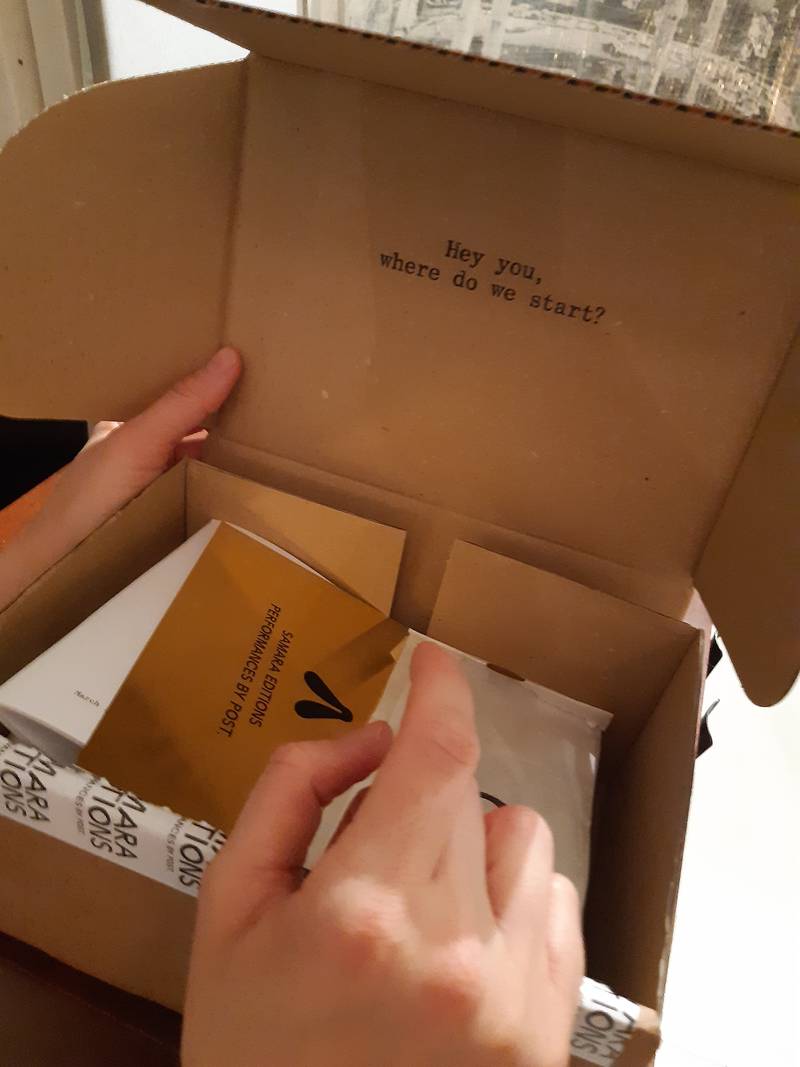

First words of Fionde
I open the scorebook. As I read through the stories, I am transported to a mystical scenery of deserts and mountains, to a boat out in the open sea, with only a few distant memories of street lights. This world appears inviting, like an empty city where only you are awake. The streets are yours to fill with scenes from movies you’ll never make. All fantasies to you.This kind of emptiness I do not mind.
The next day, I open the scorebook again. “A score for four deserts and six practices,” it says. I read the actual instructions now. I read about balloons, lights, sounds, and places, the essence of the performance. The performance I am to create. I grow a little anxious. Will this work?
Desert (place)
I invite two friends over to experience Fionde together. One of them works in a kindergarten, and it turns out that in the same week, there has been a COVID-19 case among the kids. The friends are forced to cancel. Once again, COVID-19 has unbound things.
I talk my partner into trying the practices of Fionde with me. But, since March 2020, we’ve spent almost every awake and unawake minute of most weeks together, and my wide range of curiosity now comes across as too odd too often. I have trouble trying to get my partner engaged in this exercise.
First, my partner and I try Fionde’s practice for two performers under the section “Desert in Closeness.” As I try to fall into the performance play, I feel like my co-performer/audience is not impressed. I wonder if and how often actual performers feel like this. Disappointed, I put back on the lights. Let us break back into everyday reality. Desert closeness indeed.
After 30 minutes of pondering, I decide to go improv and take the performance outside. “Put your hat on”, I say, and ask my partner to join me outside. It is easier to do this outside, where our Netflix studio/ home office is not pulling us to the everyday. I find two headsets for the music. It is -8° outside, but I am not giving in.
We work with nature’s contours, placing the lighted balloons on trees and branches, listening to Fionde’s soundtrack. I like how it feels Christmassy, like a St. Lucia parade. The lights draw me easily to a festive atmosphere. My partner is less easy to impress. After some time though, I can see my partner engage in child-like solo play with the rattling and flickering green balloon. It looks like fun, and I join in, imitating the movement.


Going impro with Fionde outside
Without speaking, we soon engage in a match of sorts with one balloon under one arm and the other one used as a tool to smack the protected balloon. I am wondering if competition is a natural game within us. Then I let go of the analysis and allow myself to play.
We are stopped at some point by a barking dog. It doesn’t seem to know what the hell is going on in the dark backyard forest of the neighborhood. Neither do we. The adult in me is about to feel shame, but I brush it off, thinking there is no harm in a little bit of odd play on a Saturday evening. The rebellion of two adults and four-light balloons on a small winter evening.
It is hard to find a space for play. Overall and in this era, But for a short while, we are creating a play, like children. When we get cold and the music stops, we take the playback inside.
I do a few of the other practices on my own. “I give myself up happily to the mystery of it all”, said Fionde’s prologue. I was hoping for a small piece of that, and a tiny one did appear.
I suppose it is intended, but to be honest, Fionde is so airy, it leaves a little too much room for the reader’s imagination. I also wonder how good the translation is, or if something has been lost in translation. At times, I can’t help but long to be a native Italian speaker reading the original text. When the text seems scattered, is that due to unfinished thinking, on purpose, or because of lazy translation work? I will not know, but I wonder at points like this:
"At night, the kitchen comes unbound. It gets deserted. We both become sand. Let’s say, “May the air and wind give us our final form.’ At night, in darkness, mirages appear.”
At times, Fionde feels like an empty vessel, a ship out in the open sea with no crew to be found. The instructions, like a map with no North, South, East, or West: “It is a desert for those, who wish to leave and perhaps never come back.”
Fionde feels like how dreams feel. Bits and pieces of places, images, and deep philosophical essential elements that are bound together and then unbound and then bound again. That’s fine; after I let go of the pressure of asking myself, “Am I experiencing this the right way?” But, just like sometimes in a dream, there is one element that I wish I could have seen more of before the dream ended. It was those sections where Fionde was alluding to the ecological loss. It’s there, but it’s too vague for me: "You know about plants and nature, do you not? Tell me then: if everything fades away, if even the earth disappears, where will we sow? " It feels like mist on the wind when you want to grasp it.
Being a poet, I like most of the words and pieces of the story in the score, but also the music. Some of the music pieces echo with such metallic emptiness that it is painfully cold, which I suspect is the point also, to show what the cold hollow deserts of our time feel like. The track Desert in Solitude Upon a Rock #65 -museum on the other hand transports me to a rainy day in a small Mediterranean village, and I love the atmosphere.
At the end of the experience, I decided to create another piece of play and experiment with the words they have offered me. I make found poetry out of the score. This is what became of it.
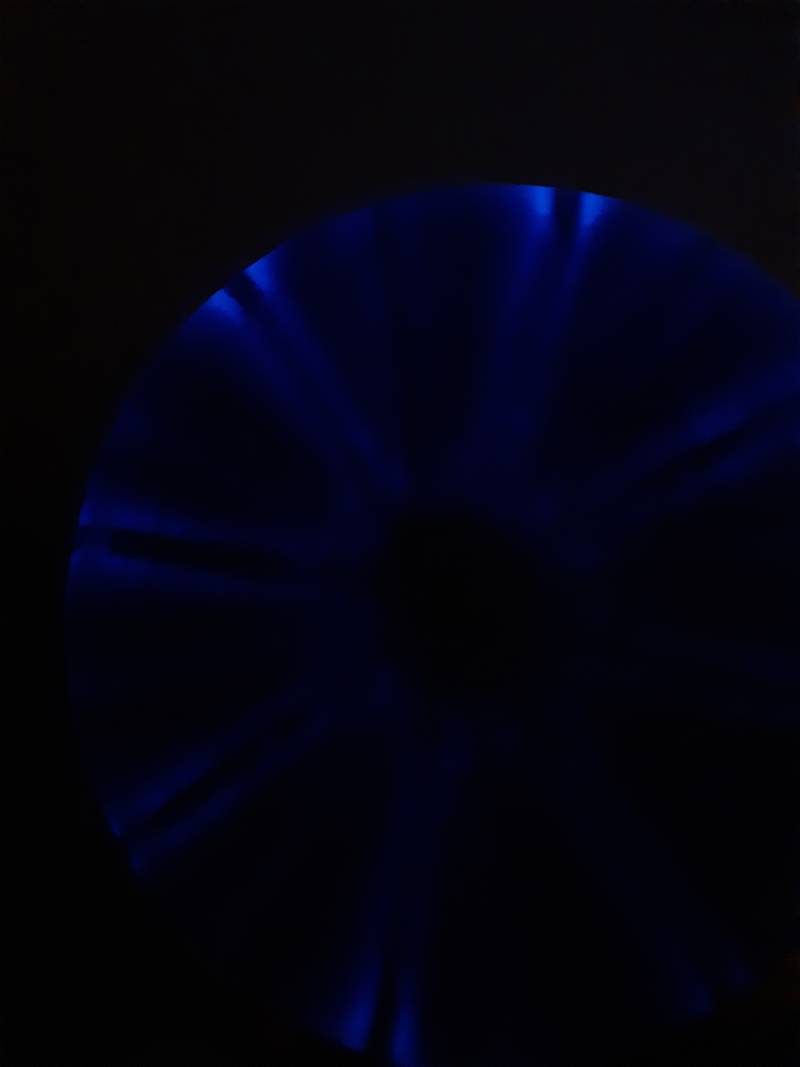

The lights within the balloon
Wind (sound)
FROM IT I HAVE LEARNED TO IMAGINE WITHOUT SEEING THE LANDSCAPE
Found poetry on Chiara Bersani’s FIONDE
Identify your space and create a desert
This desert takes place on the threshold between indoors and outdoors
By keeping silent all performers turn on their lights, glide them into the balloons, then inflate them
When they called, I already knew
It was snowing that night in Torino
You had me in your headphones
You had me in your headphones
– Stay here
– I’ve got plenty of disappearances to celebrate. I need to say goodbye.
We both become sand
We both become sand
We both become sand
We both become sand
They said you died while I was in the woods
– And when we are no longer able to get to each other, what then?
– It’ll be desert I guess.
This is what it means to get lost
give myself happily to the mystery of it all
STARS: As many as desired
Elated I say “The fog, I understand it!”
At the end of it – do I feel more connected? To the playful child within me, yes. To battle the social trauma of isolation, this might in fact be more crucial than we think.
